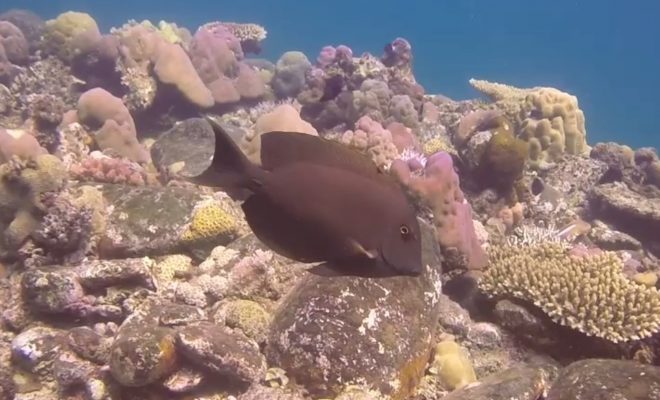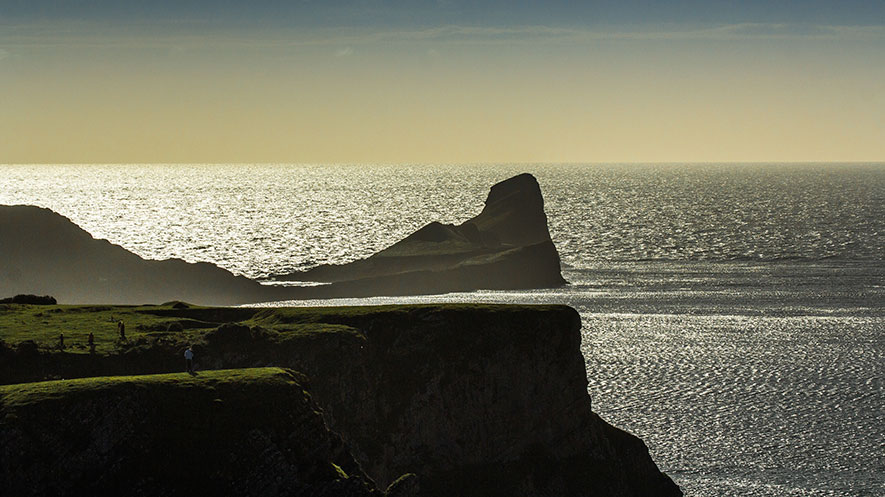New research provides evidence for positive impact of controversial tool
Research from Florida Institute of Technology finds that fish born in marine reserves where fishing is prohibited grow to be larger, healthier and more successful at reproduction.
The findings, recently published in the online journal Plos One, highlight the positive impact of a tool of fisheries management that has long been a source of frustration and concern for some fishermen, who believe such restrictions impinge on their livelihood.
In their examination of marine protected areas (MPAs) around coral reefs in the Philippines, Robert Fidler, a Fulbright scholar who recently received his Ph.D. from Florida Institute of Technology, and his major professor, Fulbright faculty scholar Ralph Turingan, found evidence that MPAs in fact helped to produce and maintain the more desirable large-bodied and older fish within populations that have been fished by local fishermen for centuries.
 This lined bristletooth fish is swimming in a marine protected area in the Philippines, where new Florida tech research has found fish grow healthier than in areas where fishing is allowed.
This lined bristletooth fish is swimming in a marine protected area in the Philippines, where new Florida tech research has found fish grow healthier than in areas where fishing is allowed.
The first reaction to marine reserves by local users is traditionally, 'You close all of these fishing areas and we can't fish anymore in there,'" said Turingan. "That is the wrong way to think. These MPAs are actually important is sustaining fishing activities."
The researchers and their collaborators found that key life-history traits in three coral reef fishes – maximum length, growth rate, and body size and age at sexual maturity – are significantly improved in the brown surgeonfish, lined bristletooth and manybar goatfish living within MPAs compared with the same species outside of MPAs.
Because fishing removes the largest fish, heavy fishing on coral reefs drives the fish to mature at younger ages and smaller sizes. Small fish have fewer, smaller eggs that, if they survive to hatching, produce weaker fish. By contrast, larger fish produce higher quality eggs, and more of them, which in turn produce healthier fish that grow larger and reproduce more, and the cycle continues.
Fidler and Turingan found that the more robust fish naturally migrate from the MPAs to the fished areas, where they can be harvested by fishermen.
“Our evidence shows this is a long-term thing. It’s like raising them in aquaculture and putting them back, but this is more natural way of replenishing depleted stocks,” Turingan said.
Though their findings were based on studies of coral reef fish in the Philippines, the researchers predicted the results could be replicated wherever marine reserves are established on coral reefs.



